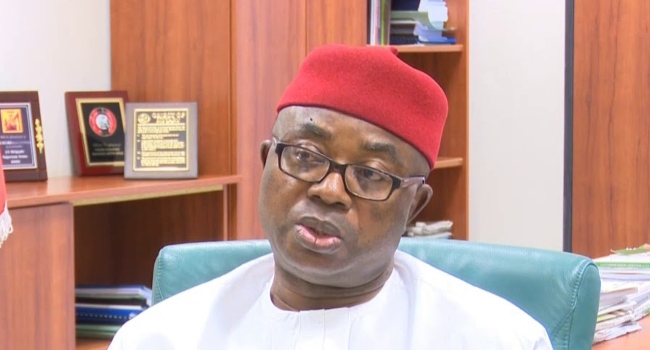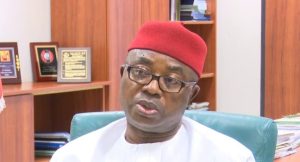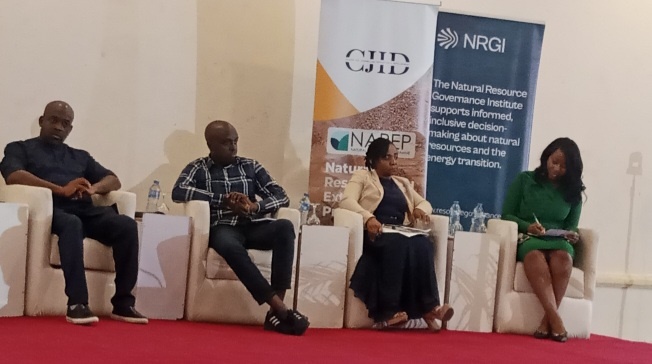Shelter is one of the basic necessities of man. Shelter was meant to provide protection for man against stronger primates in the jungle, and a cover against elements. The cave served that purpose.
It has evolved to serve man in various areas. Today, it serves as a place of worship, work, education, recreation, sports, entertainment and business, among others.
The more the need for shelter the more it is designed to fit those needs. The desire to minimise land use, celebrate aesthetics and elegance led to building taller structures.
Today, high rise buildings dot the landscape all over the world. In Nigeria and in many developing countries, what is meant to solve man’s special need has become a source of nightmare to many families.
Many families have lost their loved ones in building collapse in various parts of the country.
Those who survive it are left with physical and or mental scare. Businesses are ruined and several billions of naira lost in these unfortunate incidents.
A report by The Brookings Institution showed that, between 1974 and 2019, more than 211 buildings collapsed in various parts of the country, with more than half of the incident occurring in Lagos State.
According to the Think Tank, between 2000 and 2021, Lagos State recorded 167 incidents with 78.4 per cent being residential buildings and 12.8 per cent commercial building while the remaining 8.8 per cent were institutional buildings.
The incidents displaced no fewer than 6,000 households with an estimated loss of $3.2 trillion worth of property.
The recent gale of building collapse calls for urgent attention from stakeholders to address the challenge.
On July 13, four persons were rescued from the rubble of a collapsed two-storey building in Kubwa area of Abuja, according to Mrs. Florence Wenegieme, Acting Director FCT Federal Emergency Management Department.
Earlier, on July 10, seven persons were pulled out of the rubbles of a collapsed another two-storey building at Mushin area of Lagos State on Wednesday.
Dr Olufemi Oke-Osanyintolu, Permanent Secretary, Lagos State Emergency Management Agency (LASEMA), was quoted by the media as saying that those rescued consisted of three females and four males.
In Kano State, on April 26 three persons died following the collapse of a three-storey building in the Kuntau area of Gwale Local Government Area of the state, according to Dr Nuradeen Abdullahi, Kano Coordinator, National Emergency Management Agency.
On June 17, 2011, three persons died as a building under construction at University of Nigeria, Nsukka, caved in. Five construction workers were rescued and taken to the intensive care unit of the University of Nigeria Teaching Hospital, Enugu.
Yet on July 13, the city of Jos, Plateau was thrown into mourning following the collapse of Saint Academy, Jos school building. No fewer than 22 persons, mostly students died, and 154 others injured, according to official account.
The Nigerian Institute of Civil Engineers (NICE) says the country has recorded 41 building collapse in the last 17 months.
Observers wonder why what is supposed to be a place of safety should be become a death trap. Questions are raised as to how it should be reduced to the barest minimum.
Mr Paul Erubami, the Chief Executive Officer, Max-Migold, a physical property management firms, says effective facility management sector can stem the tide of building collapse in Nigeria.
“It starts with knowledge; it starts with skills, and these are how to put the right processes in place,” Erubami said.
Prof. Samson Duna, Chief Executive Officer, Nigerian Building and Road Research Institute (NBRRI), attributed building collapse to use of substandard materials, among others.
According to Duna, 80 per cent of building collapse happens during rainy season due to some natural causes and because the materials were substandard it gives in.
He, therefore, recommended training and retraining of engineers and professionals in the construction sector should attend refresher course to refresh their knowledge.
He said the government and professional bodies should sensitise the general public on the steps to follow when embarking on building projects.
“All professional bodies should strengthen its arm of monitoring, to ensure they function effectively during project supervision.
“The professionals must be involved in monitoring and evaluation of building projects and funds for the supervision should be incorporated in the cost of the project,” Duna said.
The Nigerian Association of Technologists Engineering (NATE) blames the challenge on the failure to keep to the ethics and codes of building, cutting corners in terms of the required materials are the main causes of building collapse.
Mr Dominic Udoatan, the national president of the association, however, expressed hope in the Council for the Regulation of Engineering in Nigeria (COREN) determination to work on the issue through closed monitoring.
He said it was important that only professionals were saddled with the responsibility of erecting buildings.
The Nigerian Institution of Structural Engineers (NIStructE) also points accusing fingers at COREN.
President of the institution, Dr Kehinde Osifala, said that non-regulation of the practice by COREN was at the root of incessant collapse of buildings and structures in Nigeria with many quacks operating freely.
He pledged the institution’s readiness to partner with COREN to flush out quacks from the building industry and save the nation from the agony of building collapse.
Then Permanent Secretary of Federal Ministry of Works and Housing, Mahmuda Mamman, gave COREN a marching order.
“I urge you to strategise and hatch out a plan to stop this menace of building collapse. There should be no more cases of building collapse and this lousy situation be brought to a stop,” he said.
He also directed the conduct of thorough checks, registrations, and mandatory monitoring of construction activities to ensure Nigerians live in well-built, solid buildings without any fear of building collapse, no matter the weather.
Mr Sadiq Abubakar, industry regulator, COREN, said for instance, there were complexities involved in prosecuting cases of building collapse and called for the involvement of trained investigators and regulatory reforms.
“Once you go to a tribunal, you need diligent steps to gather evidence. Building collapse has different causes, and without proper sampling and investigation, it becomes challenging to prosecute,” he said.
The COREN president said another challenge to effective supervision was economic. He said the issue of substandard materials and construction practices could be caused by economic pressures such as the rising cost of cement.
“There is a direct correlation between the price of cement and building collapses. When costs rise, clients often cut corners, leading to compromised building integrity,” he told newsmen.
Abubakar suggests the training and certification of professional investigators in the construction sector to enhance prosecution of suspects in building collapse.
He also canvassed decentralising investigation panels and tribunals to ensure timely and effective responses to building collapses.
“We must train investigators who are qualified, competent, and can even go to other countries to investigate. This we don’t have now, but we’re working towards that,” he said.
“We have identified gaps in the regulatory and legal framework and are packaging amendments to address these issues.
“There is the need for collaborative efforts among all actors in the building environment, including architects, builders, and surveyors. We must work as a team to ensure compliance and accountability,” he said.
By Uche Anunne, News Agency of Nigeria (NAN)

